By Jay Moschella, Curator of Rare Books at the Boston Public Library.
Phillis Wheatley Peters (1753-1784) was an early American poet and correspondent who became a transatlantic literary celebrity while enslaved in Boston. As both a Black woman enslaved in pre-Revolutionary Boston and an internationally renowned poet, Phillis Wheatley Peters navigated a world of complexity and contradiction. Even today, her biography defies conventional categories and unanswered questions about her life and work abound.
In the Rare Books Department at the Central Library, we hold a substantial collection of primary sources that researchers can use to help answer these questions. Our collections document Phillis’ life and literary work: from colonial newspapers and manuscript letters to original copies of many editions of her poems.
When she was approximately seven years old, Phillis Wheatley Peters (whose birth name we do not know) was kidnapped near the coast of West Africa and forced into captivity. After enduring the Middle Passage, she arrived in Boston Harbor in the summer of 1761. There, she was purchased by her enslavers, the prominent Bostonian couple Susanna and John Wheatley, who renamed Phillis after the ship that had brought her to the city.
Phillis Wheatley Peters composed her first poems as a young teenager. Through her position within John and Susanna Wheatley’s evangelical household, she eventually built connections with some of the leading religious and political figures of the day. In 1770, her elegy on the death of the Reverend George Whitefield brought her fame in the colonies, while her collection, Poems of Various Subjects, Religious and Moral, published in 1773, made her a transatlantic celebrity.
In 1773, Phillis Wheatley Peters journeyed to London in order to secure funding to publish Poems on Various Subjects. The venture was successful, and she returned again to New England. The visit presented a particularly complex story, as a recent court ruling had essentially freed all enslaved persons brought from the colonies on arriving in England. Many scholars now believe that Phillis struck a bargain with her enslavers, by which she would be freed if she returned to Boston from London.
During the 1770s, notices of Phillis Wheatley Peters and her work were regularly published in colonial New England newspapers. For modern readers, these notices provide a vivid image of the world that Phillis Wheatley Peters inhabited. News of her travels and details of her life are juxtaposed with first-hand accounts of the growing tensions between Britain and the colonies. Newspapers that carried praise for the genius of a young Black poet from Africa also publicized the sale of enslaved Africans and carried advertisements offering rewards for the capture of self-emancipated freedom seekers.
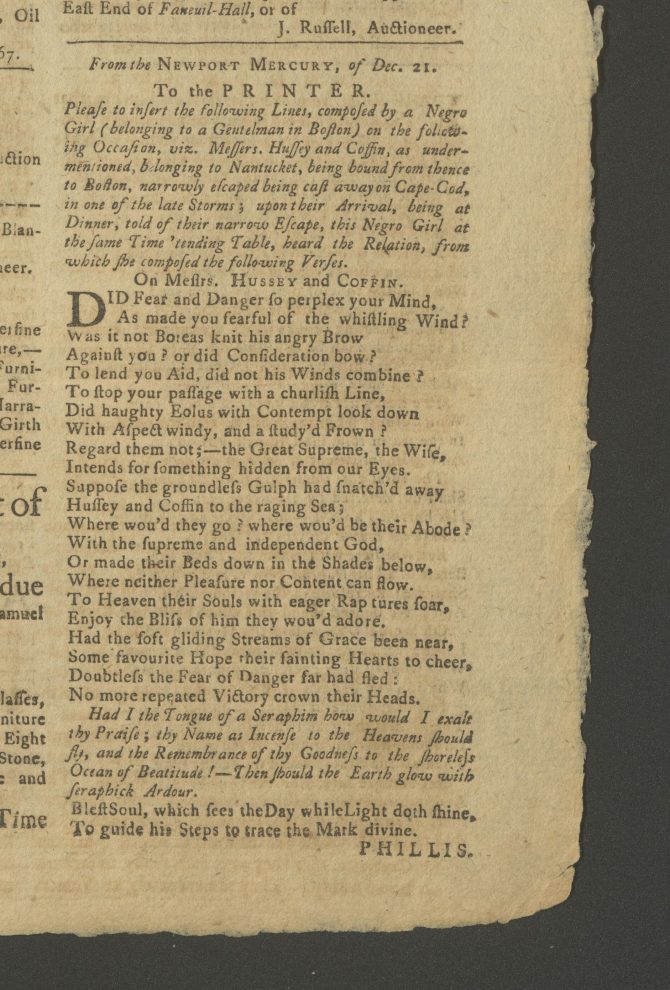
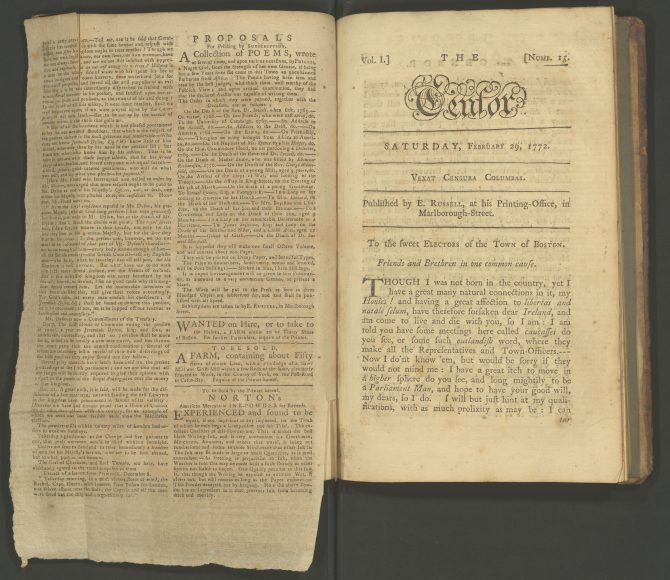
BPL H.99a.69 1782
In 1778, Phillis Wheatley married John Peters, a free Black man who had formerly been enslaved in Middleton, Massachusetts. Until recent archival discoveries by Cornelia Dayton, the nature of their marriage, their family, and of Peters’ biography have long been topics of speculation among researchers. The Town of Boston tax records, held in our Rare Books Department, provide one of the relatively few first-hand, contemporary accounts of John Peters and his fortunes during his marriage to Phillis Wheatley Peters and after her death.
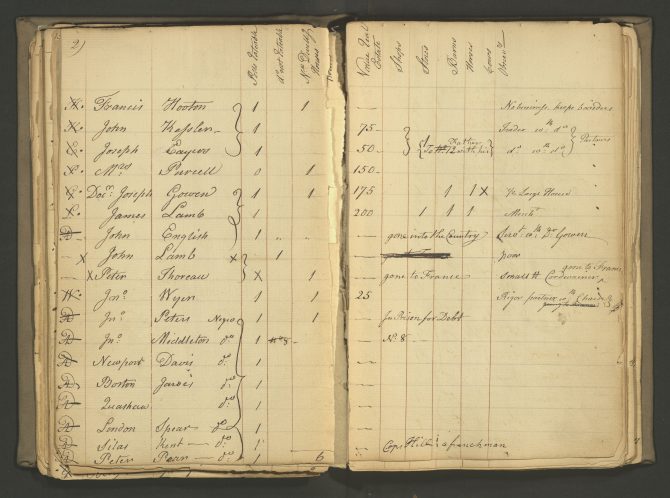
Between 1776 and 1784, the year of her death, Phillis Wheatley Peters’ name appeared less frequently in newspapers and magazines. Still, she remained a celebrity throughout the rest of her life. She died at the age of 31.
While it has been 250 years since Phillis Wheatley Peters first published her book of poetry, she remains an important part of Boston's cultural history. Visitors and scholars alike can read her poems and trace her life throughout the newspapers and manuscripts in our Special Collections Reading Room. All are welcome to make an appointment to see these items in person to explore more about Phillis Wheatley Peters.

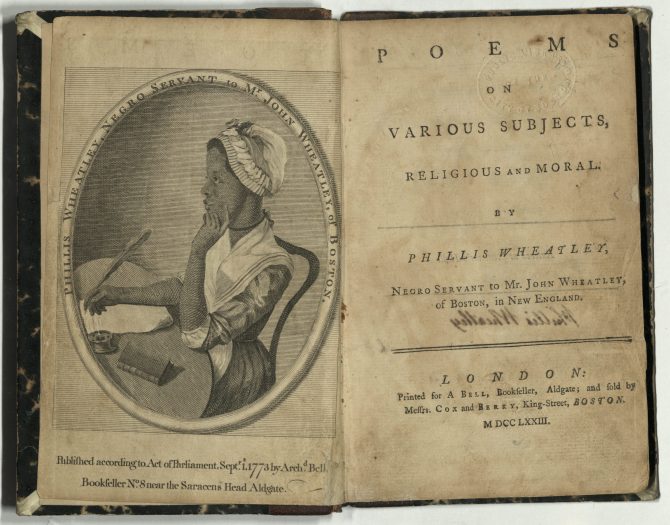
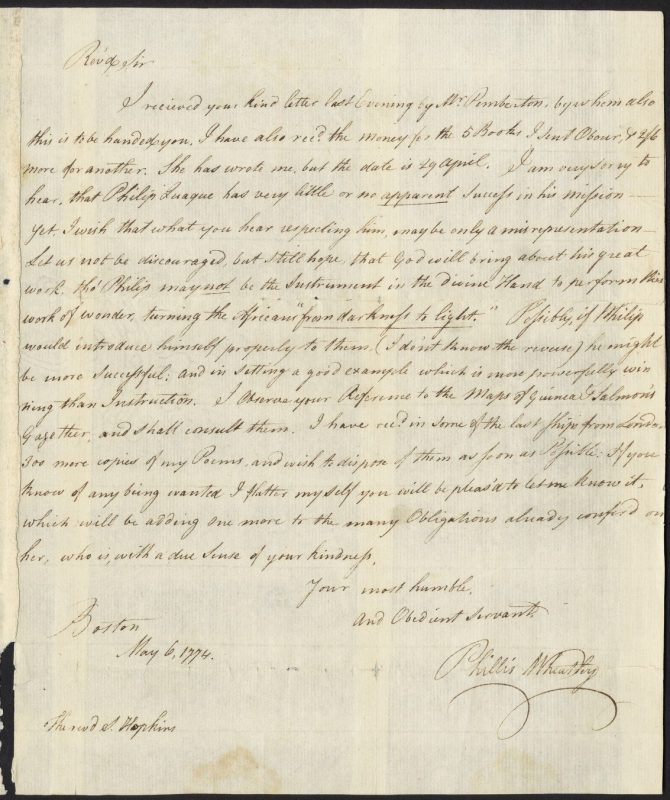
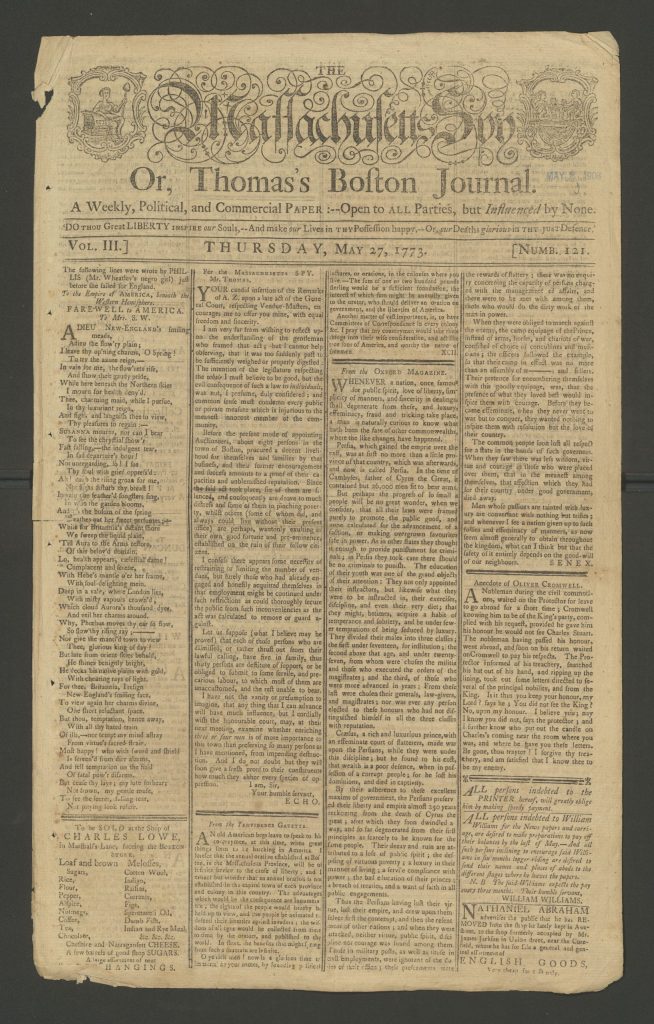
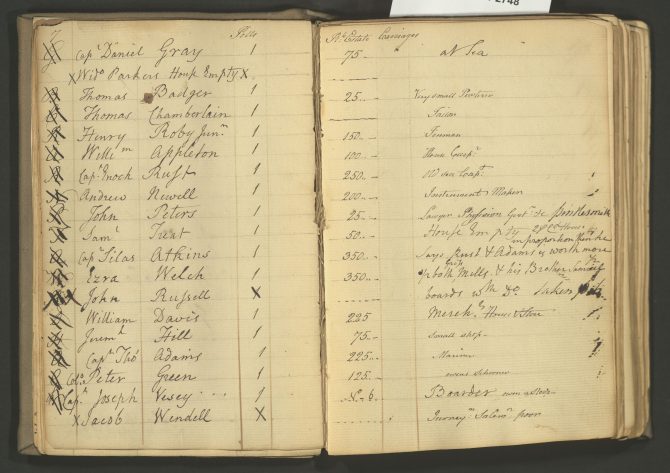

Add a comment to: Tracing the Life of Phillis Wheatley Peters